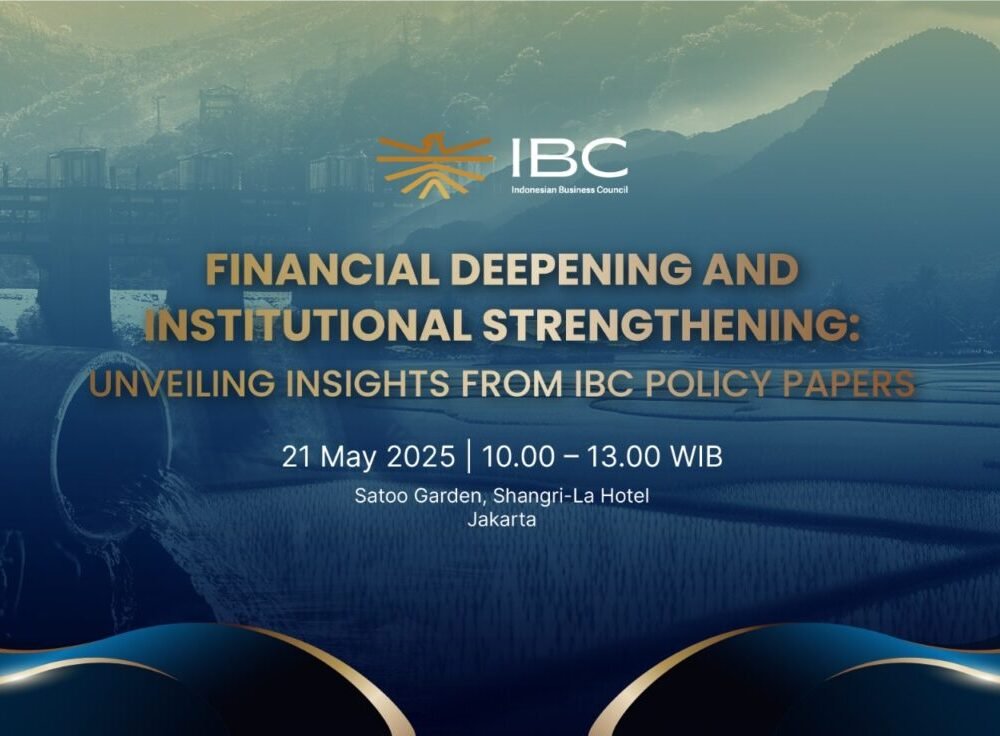
- This event has passed.
Financial Deepening and Institutional Strengthening: Unveiling Insights from IBC Policy Papers
May 21, 2025 @ 10:00 am - 1:00 pm

Inclusive growth toward Indonesia Emas 2045 requires a financial system that is stable, liquid, and responsive to the needs of the real sector. However, Indonesia’s financial sector still faces several structural challenges, such as limited liquidity (with the M2 to GDP ratio at 43.8%), high funding costs (Net Interest Margin at 4.6%), and the suboptimal development of financial instruments and institutional coordination.
In response to these issues, the Indonesian Business Council (IBC)—an independent and non-profit association consisting of business and industry leaders in Indonesia—has developed eight policy papers focused on three key elements of financial sector development: depth, access, and efficiency. All these recommendations have been consolidated into a single synthesis report that emphasizes the importance of institutional reform and cross-authority synergy to build a more liquid financial system that supports sustainable growth.
As a follow-up, IBC will organize a public discussion involving business players, regulators, and economists to strengthen the commitment to the financial reform agenda, particularly in creating liquidity as a foundation for strong and inclusive economic growth.

